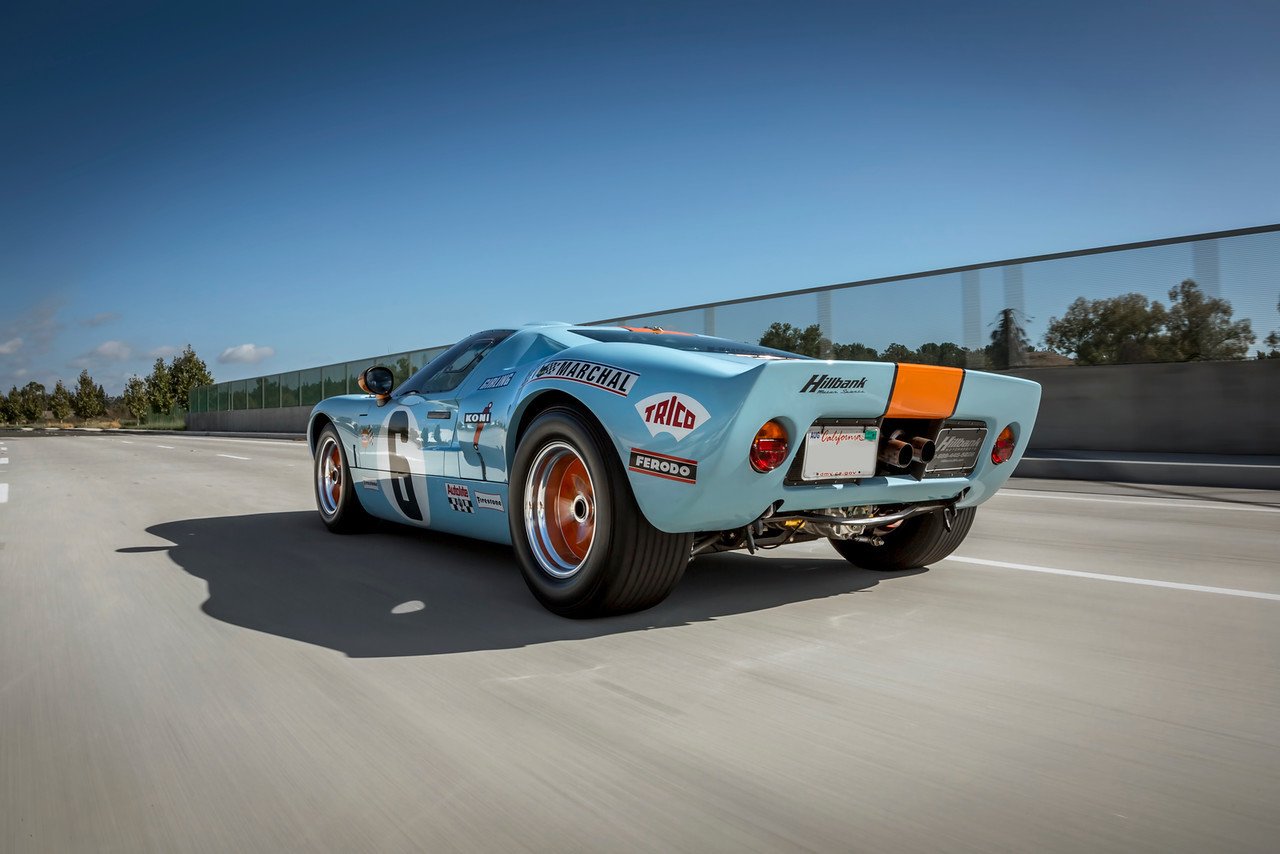HOW MANY FORD GT40S WERE MADE?
HOW MANY FORD GT40S WERE MADE?
Few brands are as American as Ford, known for icons like the Mustang, F-150, and Shelby GT500. But in 1966, the Ford GT40 took things to another level. Designed to beat Ferrari, it became the first car to end Ferrari’s six-year winning streak at Le Mans, redefining Ford’s reputation in motorsports.
How Many GT40s Were Made?
A total of 105 Ford GT40s were produced by Ford from 1964 to 1969. These cars were built in various versions, (Mk I, Mk II, Mk III, and Mk IV), each with unique features. The Mk II was particularly famous as it was driven by Ken Miles in 1966. It was also the same variant as the one shown in the 2019 Ford v Ferrari movie.
Why Were Only 105 Ford GT40s Built?
Purpose-Built for Racing: The GT40 was designed for winning endurance races, especially Le Mans. It was never intended for mass production, which is why only 105 were made.
Specialized Design and Engineering: Built for the grueling demands of endurance racing, the GT40 featured cutting-edge design and technology. Ford worked with experts like Carroll Shelby to make each variant a precision-built race car.
High Production Costs: Creating the GT40 was expensive due to its advanced materials, technology, and craftsmanship. Large-scale production was not economically feasible, as Ford aimed to boost brand prestige and not sales revenue.
Regulatory and Homologation Requirements: FIA regulations require manufacturers to produce a set number of cars for competition eligibility. The GT40 met these lower homologation requirements, allowing Ford to qualify for Le Mans without mass production.
Market Demand: The GT40, designed for racing performance, wasn't practical for everyday driving. Its focus limited market demand, as it was meant to enhance Ford's image rather than drive sales.
How Many Ford GT40s Are Left?
Determining how many original Ford GT40s remain is tough due to factors like age and modifications, but many of the 105 are still around. Collectors, museums, and historic races preserve these cars. Notably, one of the five GT40 prototypes from 1964 sold for over $7.56 million by Duncan Hamilton Rofgo in 2020.
Why Was the GT40 Banned?
Contrary to popular belief, the GT40 was never actually banned. The FIA changed rules that Ford had to meet, affecting its eligibility. Here are the reasons for the GT40's decline:
- Engine Size Limits: After the GT40's success with its 7.0-liter V8, Le Mans limited engine size to 5 liters in 1968, sidelining the larger GT40 engines.
- Evolution and Adaptation: Ford adapted, using smaller 5.0-liter engines in the GT40s that competed in 1968 and 1969, achieving further victories. However, the era of the big 7.0-liter GT40s was over.
- Other Factors: While the engine size rule was the main reason for its decline in top-level racing, other factors also contributed. As racing technology advanced, newer cars with better designs and technologies posed new challenges that eventually ended the GT40's reign by the early 1970s.
How Much Is an Original GT40 Worth Today?
Original Ford GT40s typically sell for anywhere between $3 million and $10 million, with rare models fetching even more, like the one that sold for $7.56 million in 2020. Prices depend on factors like history, condition, and provenance.
Key elements influencing value include:
- Historical Significance: The GT40 is iconic due to its Le Mans wins in the 1960s, especially over Ferrari. Cars with a strong racing and automotive history command higher prices.
- Rarity and Originality: With only 105 made, the GT40 is rare. Original components boost value even more, with less restoration often preferred by collectors.
- Model Variations: The Mk I to Mk IV variants have special features and varying racing success. Notable models and prototypes are especially valuable.
- Condition and Restoration: Well-preserved or professionally restored cars to original specs are highly valued. Minimal restoration can be more prized.
- Market Trends and Demand: Economic factors and demand affect a car's market value. The GT40's legacy keeps it in high demand, maintaining its high value.
Talk to Hillbank Motorsports Today to Get Your Very Own Legendary
